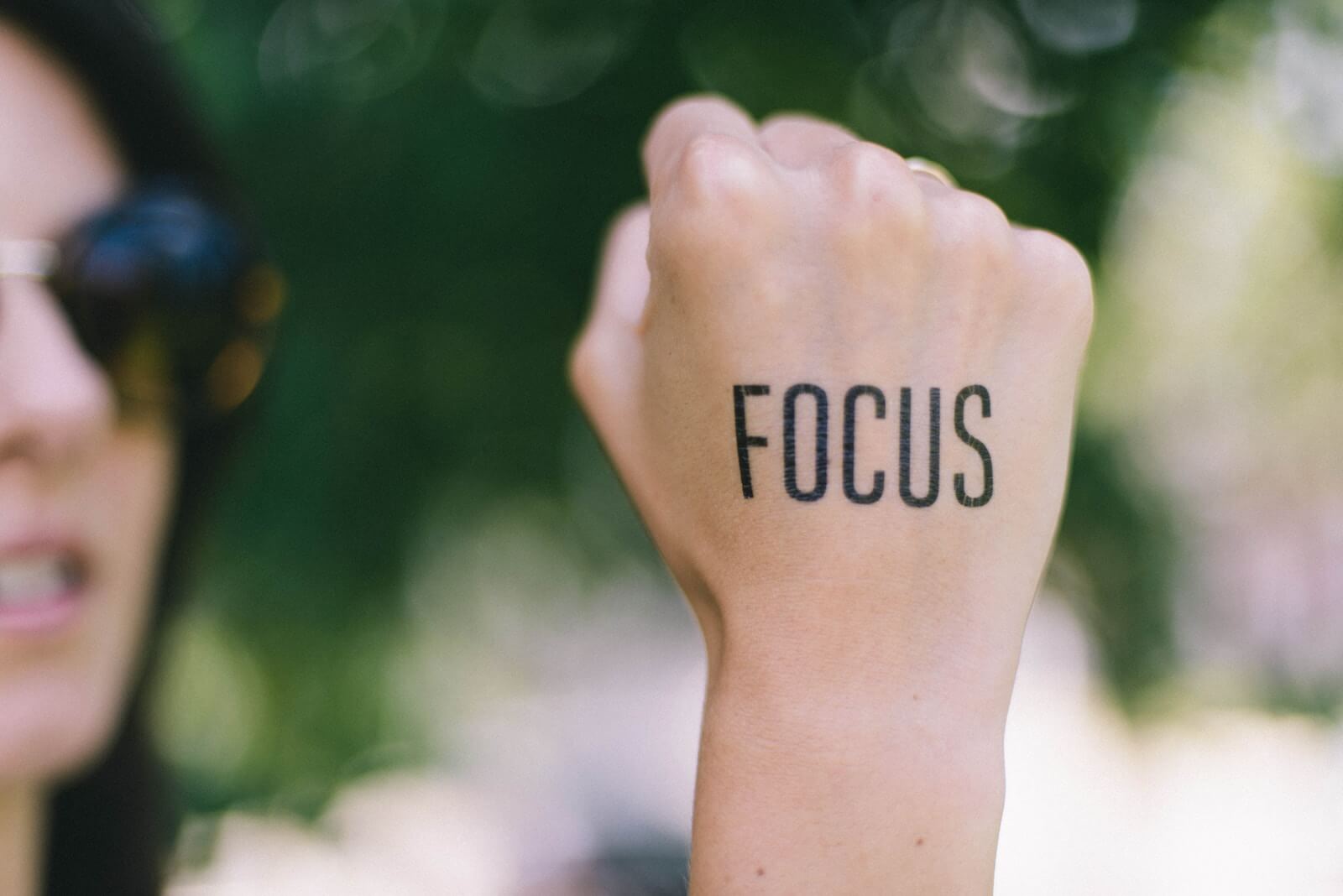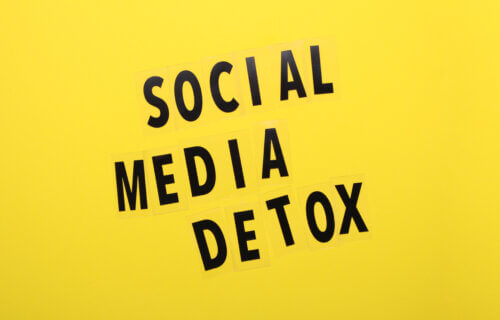Remember when we had no clue how an app worked, we didn’t share our daily activities online, and our phones didn’t eat first? If you’re in your 40s, 50s, or older, you have those memories, but admittedly, it is getting harder and harder to imagine a world without social media. Twitter, Instagram, Facebook, and other platforms are such a part of society it’s difficult to find someone who isn’t active on at least one of these sites for work or pleasure. As a result, we spend hours scrolling through posts until our hand goes numb. This habit can lead to a social media addiction where even the thought of logging out can make you sweat. That’s why we have looked at the many benefits of a social media detox.
More of us are willing to take part in a digital detox to combat feeling addicted to social media. Have you ever thought of taking one? It’s a specific amount of time you vow to stay off all social media to reset your brain. This practice is not just about breaking a habit; it’s about rediscovering a life beyond the screen. A digital detox challenges you to find joy and engagement in the world without the constant barrage of notifications and likes.
While social media makes it easier than ever to stay in touch with family and friends, studies show it can have a negative and even damaging effect on our mental and physical health, as well as change the way we communicate. A survey conducted by Kaspersky Lab uncovers that one-third of respondents observe a significant decrease in direct, face-to-face interactions with their parents, partners, children, and friends. This has led some people to put down their phones and pay more attention to the people they’re with.
If you’ve never tried a digital detox – you may be surprised by how much better you feel. The benefits are multifaceted. It’s not just about reclaiming time or reducing screen usage; it’s about enhancing your mental well-being, improving face-to-face relationships, and fostering a deeper connection with the real world. Imagine reading a book without pausing to check notifications, having a meal without the urge to document it for online followers, or simply enjoying a walk without the compulsion to capture and share the moment. While it may not be easy to quit social media cold turkey, experts recommended you set realistic goals, so you don’t fail. Maybe put your phone down for a few hours a day or leave it at home on the weekends. Some other tips include:
- Notify Your Circle – Let your friends, family, and followers know that you’re taking a break from social media so they know how to reach you if necessary.
- Remove Temptations – Uninstall social media apps from your phone, or log out of your accounts on all devices.
- Find Alternatives – Identify activities to fill the time you would typically spend on social media, such as reading, exercising, or taking nature walks.
When compiling the top benefits of taking a digital vacation from various popular websites, several key advantages consistently emerge. These benefits not only address immediate improvements in well-being but also have long-term impacts on one’s lifestyle. We’ve outlined the seven benefits of a social media detox below based on advice from nine experts. If you’ve done a digital detox let us know how it went in the comments below!
➡️ How Our “Best Of The Best” Lists Are Created
StudyFinds’ “Best of the Best” articles are put together with the idea of taking the work out of common consumer research. Ever find yourself searching for a product or service on Google and reading multiple reviews to find items listed across many of them? Our Best of the Best lists are created with that process in mind, with each item ranked by how frequently it appears on expert reviews or lists. With Best of the Best, you are getting consensus picks — making them truly the best of the best!

The List: What are the Benefits of a Social Media Detox?
1. Reduced Anxiety and Depression

Wouldn’t it be wonderful if you didn’t need anti-anxiety medicine to get through the day? Many experts suggest the rise in anxiety, especially in kids, is due to social media. We are constantly comparing ourselves to our friends, and if a post doesn’t get a certain number of likes or comments, we feel defeated. According to a study published in CNET, taking just a one-week break from constantly scrolling and posting can greatly reduce anxiety and depression.
News consumption on social media sites can also lead to stress. Power To Live More says constant bombardment about wars, bombings, and other heinous acts can prove to be too much and trigger anxiety. The website adds a social media detox that helps to break away from “issues, rumors, or terrible world news” and helps put your mind at ease.
If comments on “X” and “Facebook” tend to raise your blood pressure, Greatist points out it may be a sign to take a break from social media. If you are more “enraged, jittery or fearful” after scrolling through your feeds, it could be time to eliminate that app or put the phone down.
2. Better Sleep

If you don’t silence your smartphone at night, the constant notifications may keep you up at night, leading to less sleep. This can affect your mind and body. Experts at Power To Live More also suggest you stop using electronic devices 30 minutes before bed, so your brain has time to shut down for a better night’s sleep.
The blue light emissions from the phone are also linked to sleep issues and daytime drowsiness. As a result, CNET says avoiding screen time before bed reduces that blue light exposure, so if you conduct a digital detox, you’re bound to improve your sleep.
Deliberate Directions offers this advice to get better sleep: put your phone on a social media schedule. Take advantage of apps that include digital well-being functions or detox challenges.
3. Stronger Social Connections

Because it’s called “social” media, we think we’ll be more social if we are on our devices all the time. But, experts say if you disconnect from social media, you’ll be forced to have more face-to-face interactions to stay connected with family and friends. Healthier Steps says in-person interactions are a great way to build long-term relationships and allow you to gauge a person’s “true feelings” about things.
When was the last time you talked to someone in an elevator or chatted with a fellow customer waiting in line at a store instead of looking at your phone? According to CNET, “Setting your phone aside can help you stay engaged with those around you.”
Greatist takes this a step further stating you are more likely to “seek connection” in real life if you’re not constantly looking down at your phone.
4. Increased Focus

With so much incoming information from social media, it’s easy for your brain to become overloaded. As a result, you can lose focus at home, work, or school. Greatist writes stepping away from social media can “clear mental clutter.”
According to CNET, we are much more present when we are distracted by what we see on our phones. Think of how much more you will get done when you’re not replying immediately to social media postings and messages.
If you’ve noticed your attention span decreasing, the moment you stop social media you’ll probably have an easier time staying on task. Healthier Steps says when you decide to stop scrolling, you “give your brain a chance to rest and recharge.”
5. No More FOMO (Fear of Missing Out)

When you see all your friends at a party that you weren’t invited to you can have FOMO (Fear of Missing Out). But, if you never see what your friends are up to on social media, what you don’t know won’t hurt you! Greatest says when you no longer focus on everyone else, you put yourself in control of your own daily life.
According to Bella Vida Candles, as soon as you stop looking at everyone else’s highlight reels, you’ll feel more secure about the activities and events happening in your own life.
As soon as your brain starts to detox from social media, you won’t even miss it and the experts at Deliberate Directions say it will no longer be important to you.
6. More Productivity

Did you know the average person spends more than two hours a day on a social media network? Think of what else you could get done with that time! According to Power To Live More, you can devote that newfound time to reading a book, starting a blog, or finally working on that pet project that’s been on the back burner.
A digital detox can help you find extra time in your day. “You might be surprised at how much more productive you are when you don’t have the constant distraction of social media,” writes Healthier Steps.
Social media can be a distraction for those chores you don’t like to do. If the laundry is piling up, along with the dishes in the sink, you’ll have more time to tend to those things when you stop scrolling. CNET says setting aside distractions allows you to be more productive and focus on responsibilities.
7. Improved Health

Rounding out our list is improved health and who can argue with that? Looking at your screen constantly can cause eye strain as well as hand, neck, and back issues. Greatest says dialing back on social media can help curb some of those aches and pains, as well as relieve frequent headaches.
Power To Live More agrees saying, “Humans are not made to look down while walking, sitting, or standing constantly.” Giving yourself time off your device will make you feel a lot better both mentally and physically.
Not only will you feel better physically, but mentally as well and you’ll have more time for self-care, which is equally important. Healthier Steps experts believe scheduling “me time” into your day is a top priority and will improve your overall health and well-being.
You may also be interested in:
Sources:
- Greatist
- Healthnews.com
- Deliberate Directions
- CNET
- Power To Live More
- Medriva
- Healthier Steps
- Love to Know
- Bella Vida Candles
Note: This article was not paid for nor sponsored. StudyFinds is not connected to nor partnered with any of the brands mentioned and receives no compensation for its recommendations. This article may contain affiliate links in which we receive a commission if you make a purchase.



